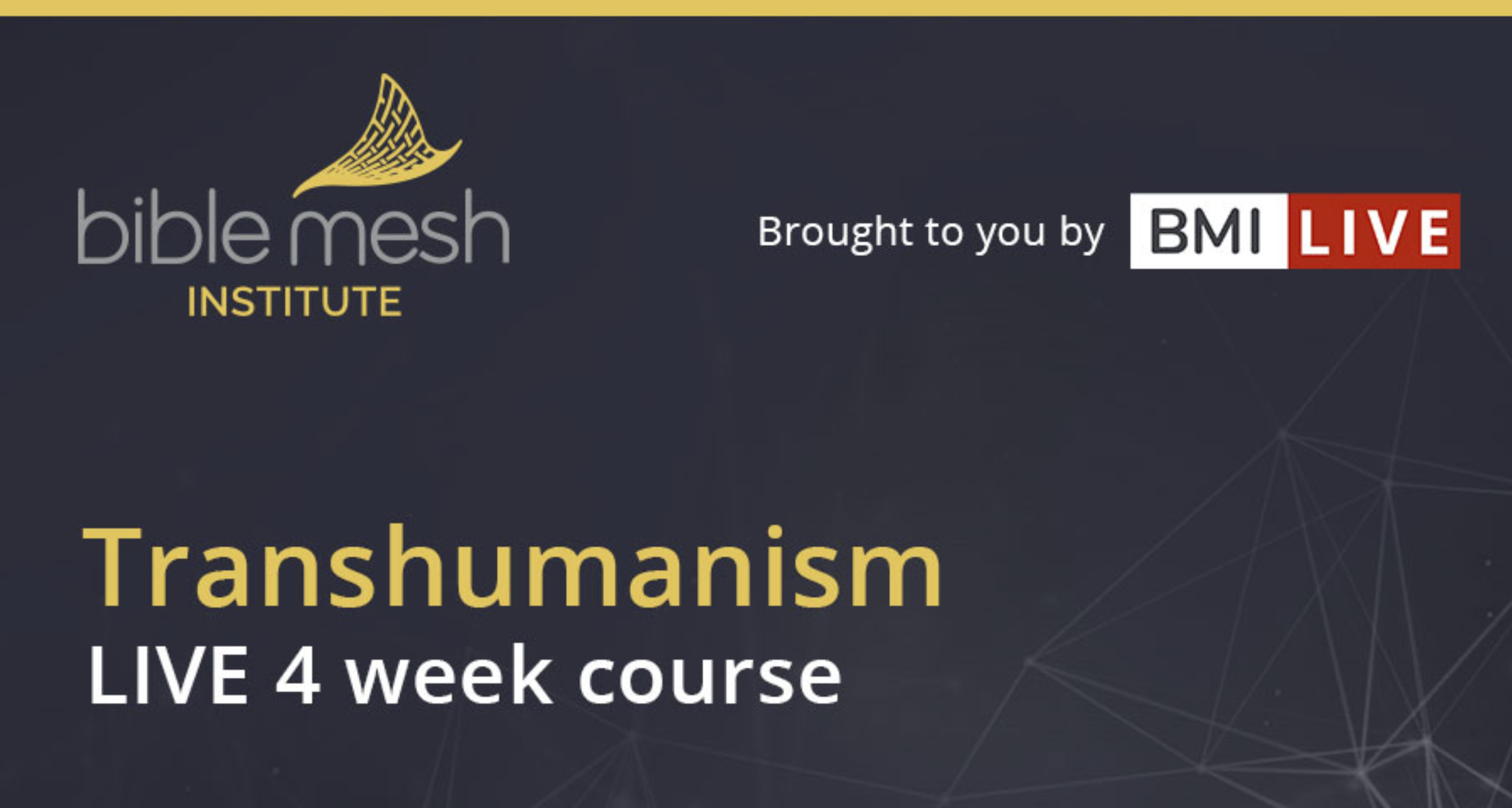Note: This live course ran back in 2021. If you want to explore transhumanism and it’s impact on Christian Discipleship, we’d highly recommend Dr. Jacob Shatzers book.
Christians must be guided by the biblical doctrine of humanity in an era when some claim artificial intelligence, robotics, and medical technology will allow us to escape our humanity. That’s the focus of the inaugural BibleMesh Institute Live course, set to begin April 5.
Dr. Jacob Shatzer will guide participants through a distinctly Christian response to transhumanism—the theory humans can evolve through technology beyond their current mental and physical limitations. In this live, interactive 4-week course, students will study through Dr. Shatzer’s book Transhumanism and the Image of God: Technology and the Future of Christian Discipleship.
Each hour-long class session will include 45 minutes of live lecture followed by 15 minutes of interactive questions and answers. The online sessions will begin at 3 p.m. Eastern time on four successive Mondays, beginning April 5.
There has never been a more relevant time to explore how we can be faithful followers of Christ in an age where technology has such a profound influence on human life.
The course will explore artificial intelligence, robotics, medical technology, and communications tools among other topics. Dr. Shatzer will examine how everyday technological developments continue to change the way we think, relate, and understand reality.
The 4-week course will cover the following sessions:
Session 1
What is technology?
Session 2
What is transhumanism?
Sessions 3 & 4
How do we even begin to respond?
“During the remainder of this century we will increasingly have the potential to alter the future, not just of individuals, but of the entire human species,” BibleMesh Institute President C. Ben Mitchell said. “… Jacob Shatzer—a new and refreshing voice in the conversation—provides cogent analyses of the transhumanist impulse and important practical strategies for preserving our humanity against the so-called technological imperative. Nothing less than our very humanity is at stake,” Mitchell said.
